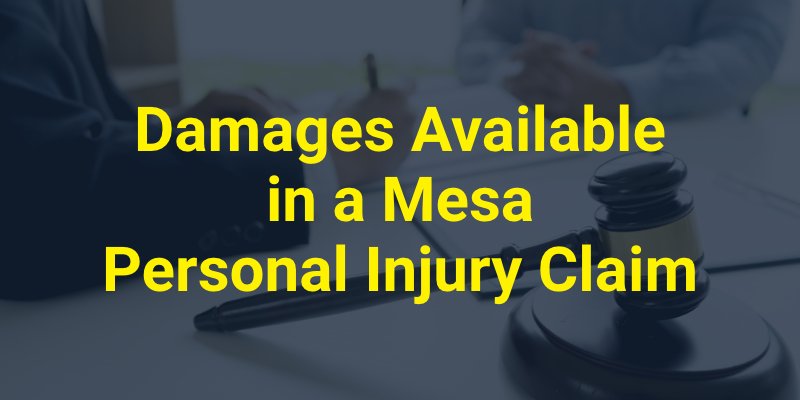When you become a victim of a personal injury in Mesa, Arizona, understanding the types of damages available to you is essential for ensuring you receive full and fair compensation. Monetary compensations are often categorized into economic, non-economic, and, in some cases, punitive damages. Knowing how these different types of damages work can make a significant difference in the outcome of your Mesa personal injury claim.

Economic damages are the most straightforward type of damages and include tangible losses that are easily quantifiable. These damages cover:
Non-economic damages compensate victims for the intangible effects of their injuries. These damages are often more difficult to quantify but are equally important in ensuring comprehensive compensation. They include:
In addition to compensatory damages, punitive damages may also be pursued in certain cases. Unlike economic and non-economic damages, which aim to make the victim whole, punitive damages are intended to punish the defendant for particularly egregious behavior and deter similar future conduct.
In Mesa, Arizona, claiming punitive damages requires meeting a stringent standard known as the “evil mind” standard.
A. Punitive Damages Standard To recover punitive damages at trial, Plaintiffs have the burden of proving by clear and convincing evidence that Defendants acted with an “evil mind.” Rawlings v. Apodaca, 151 Ariz. 149, 726 P.2d 565 (1986). The required state of mind may be shown by any of the following: 1. Evidence of conscious disregard for the health and safety of the tort victim; 2. Evidence of financial motive of the defendant motivating sub-standard conduct; or 3. Evidence of dishonesty, concealment of facts, fraud, or misleading statements to cover culpability.
These types of damages are rare but can be awarded in some cases.
Understanding and correctly identifying these damages can significantly impact the outcome of a claim, ensuring victims receive the compensation necessary to recover and move forward with their lives. If you or a loved one have been affected by a personal injury, seeking professional legal help is crucial. Contact us today to schedule a free consultation.